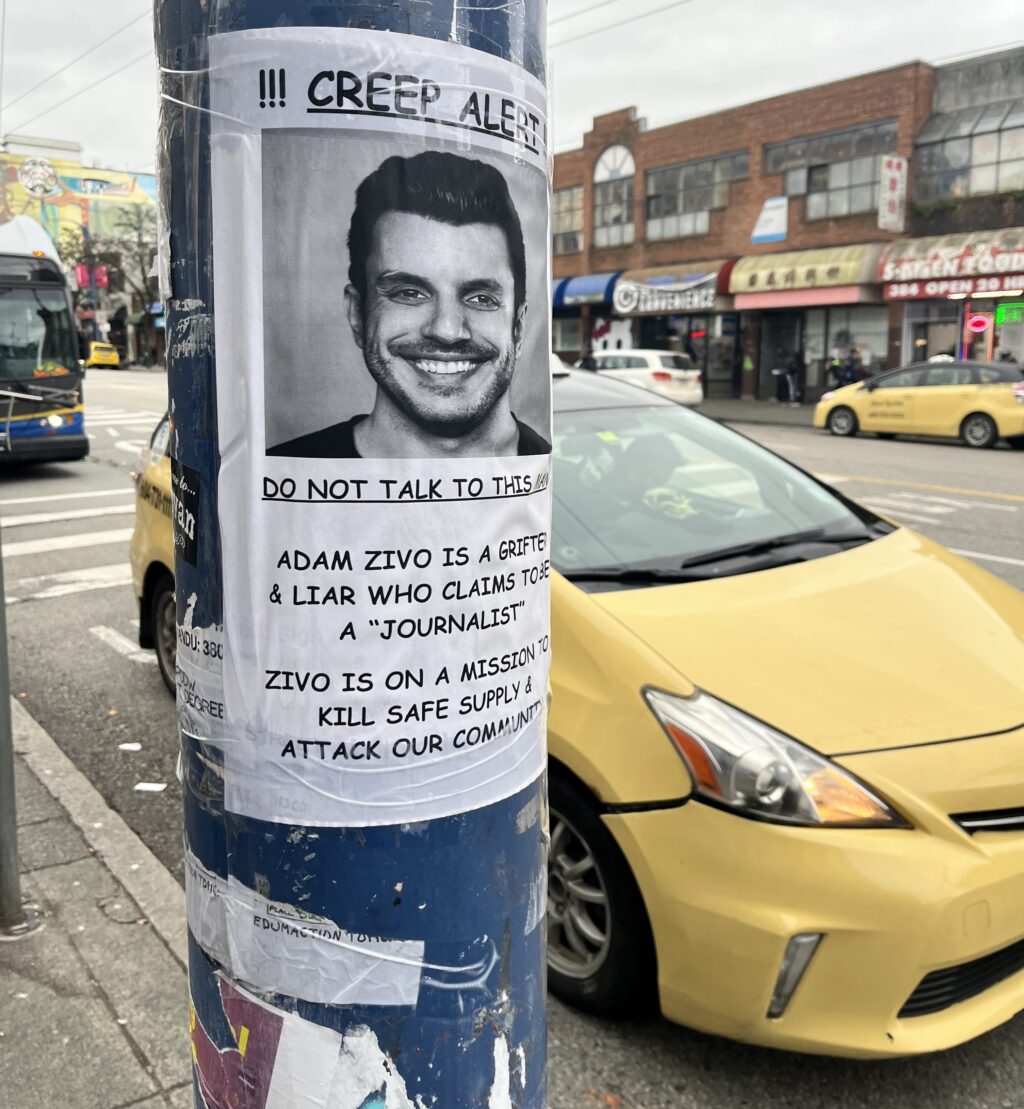After a complaint was submitted to the National NewsMedia Council (NNMC), the National Post has settled on issuing a public clarification regarding one of Adam Zivo’s deceptive and hyperbolic drug law opinion editorials.
Byron Wood, a community organizer with Workers for Ethical Substance Use Policy (WESUP), whose members are workers at risk of dying from current drug laws, submitted the complaint. Wood posted earlier this week that “newspapers are accountable to journalistic standards – even with opinion writers.”
The complaint cited Zivo’s coverage of the Harm Reduction Nurses Associations Charter challenge to Bill 34 – legislation that expands law enforcement discretion to arrest, fine and/or displace people who are suspected of having recently used drugs in public places. In his opinion-based piece, Zivo inaccurately wrote that, “the Supreme Court of B.C. provisionally ruled that addicts may have the right to openly use drugs in all public spaces, including playgrounds and splash pads.”
Under BC’s decriminalization framework, drug possession (nevermind consumption) is and remains illegal 15 meters from playgrounds, splash pads and all school premises regardless of Bill 34. The legislation is currently halted under an injunction granted by the BC Supreme Court due to the reasonable possibility of it causing irreparable harm to people who access the toxic drug supply.
The National Post has now added an Editor’s note clarifying the same.

Zivo is not the only one to inaccurately portray Bill 34.
As covered by The Bind reporter Dustin Godfrey, Port Coquitlam Mayor Brad West repeated this lie and others on CHEK News. Godfrey, an award winning journalist and former daily news reporter, wrote, “it’s hard to recall a time that I’ve seen such consistent falsehoods not only being told but going unchallenged in a non-National Post mainstream Canadian news outlet.”
Godfrey correctly pointed out that organizing against Bill 34 has been centred on the fact that supervised spaces to use drugs are few and far between, and using publicly can be a survival strategy in a context of heightened risk of overdose; as well as concerns over a wide expansion of the scope of police to displace people.
This story is not the only time Zivo’s opinion pieces have been placed under scrutiny. In January, four service users of the Toronto Overdose Prevention Site, released a letter of their concerns of Zivo’s predatory coverage.
In the letter, the group wrote, “Mr. Zivo will never understand our suffering, the suffering we have experienced because of loss, because of the constant attacks that we read in newspapers and see all the time, the hate from strangers taking pictures of us without our consent.”
Others have pointed out that Zivo previously claimed his former sole proprietorship was a non-profit while actively fundraising for it. The National Post has also not disclosed to date that Zivo directs a nonprofit with a Conservative Party candidate while granting the content creator license to publish clear attacks on Liberal Party candidates.
Mr. Zivo will never understand our suffering, the suffering we have experienced because of loss, because of the constant attacks that we read in newspapers and see all the time, the hate from strangers taking pictures of us without our consent.”
The National Post’s admission of Zivo’s published falsehood is surprising but not entirely unexpected. While right-wing attacks against drug users have apparently replaced Zivo’s previous coverage of the conflict in Ukraine as politically expedient for Canadian media giants, even Postmedia is obligated to meet a basic standard of factual accuracy to be part of the National NewsMedia Council. For that reason, a publicly posted correction to Zivo’s reporting allows for the piece’s continued online presence without National Post leaving the council, while BC’s drug toxicity crisis worsens.
At least until the federal election, when political priorities and Postmedia’s preferences are bound to change.



